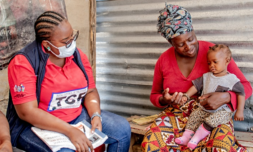A South Africa report by the UN reveals a disconcerting national unemployment rate that persistently hovers above 30%. Gen Z in particular have an unemployment rate exceeding 60%.
South Africa is grappling with a deep-rooted unemployment crisis.
The United Nations recently released a report that paints a somber picture, revealing that more than half of South African Gen Zers are not employed.
One leading factor is a struggling economy, marked by sluggish growth, limited foreign investment, and persistent income inequality. A mismatch between Gen Z skillsets and job market demands also further exacerbates the problem.
Lack of access to quality education and training opportunities leave many young people ill-equipped to compete for the limited job openings that are available.
According to the report, the repercussions of rampant youth unemployment are vast and far-reaching.
Currently, more than 28 million Gen Zers live in South Africa. With the lack of job prospects, many find their dreams and ambitions shelved. Those now graduating often face the harsh reality of sending out countless job applications, only to receive rejection after rejection.
Unemployment is intrinsically linked to poverty. Families with unemployed children may not be able to make ends meet, perpetuating a cycle of struggle that spans generations. Moreover, the disparity between the employed and unemployed deepens social and economic inequalities.
A lack of prospects has led to many skilled and educated young workers seeking better opportunities abroad. This trend further hampers the nation’s development, as frustration leads to unrest and political instability.




















